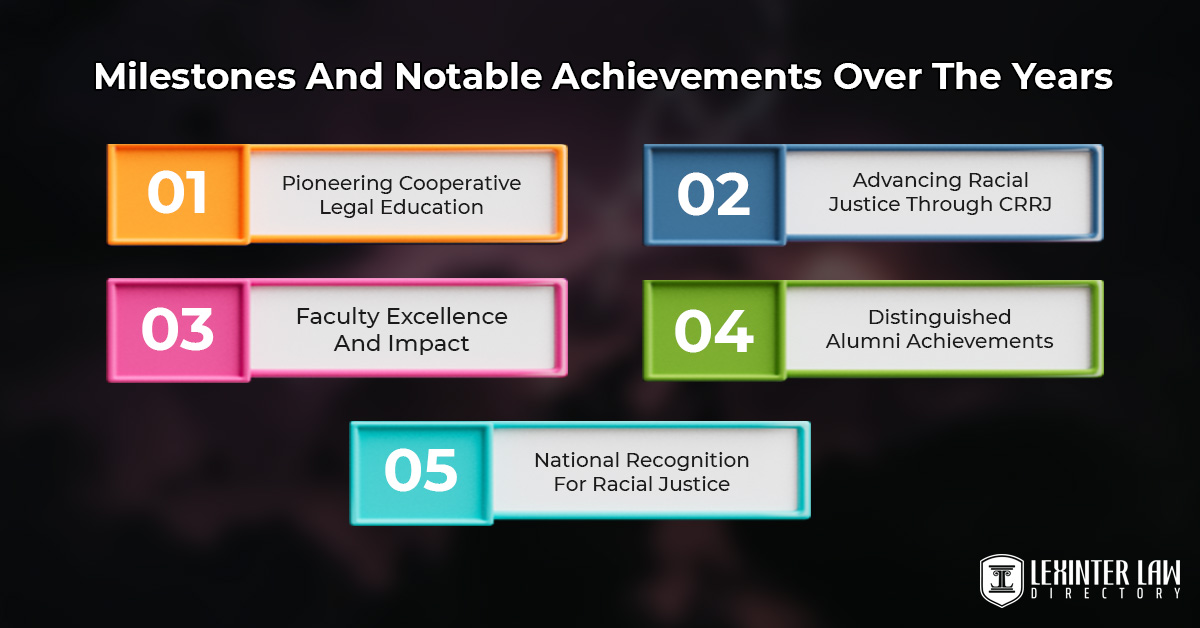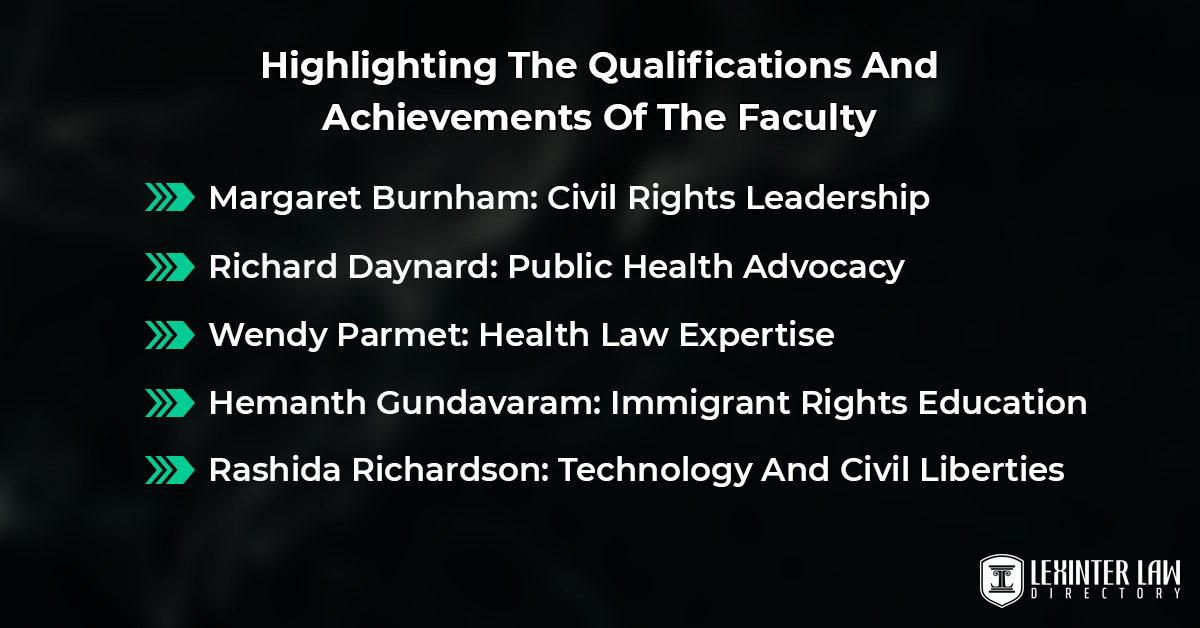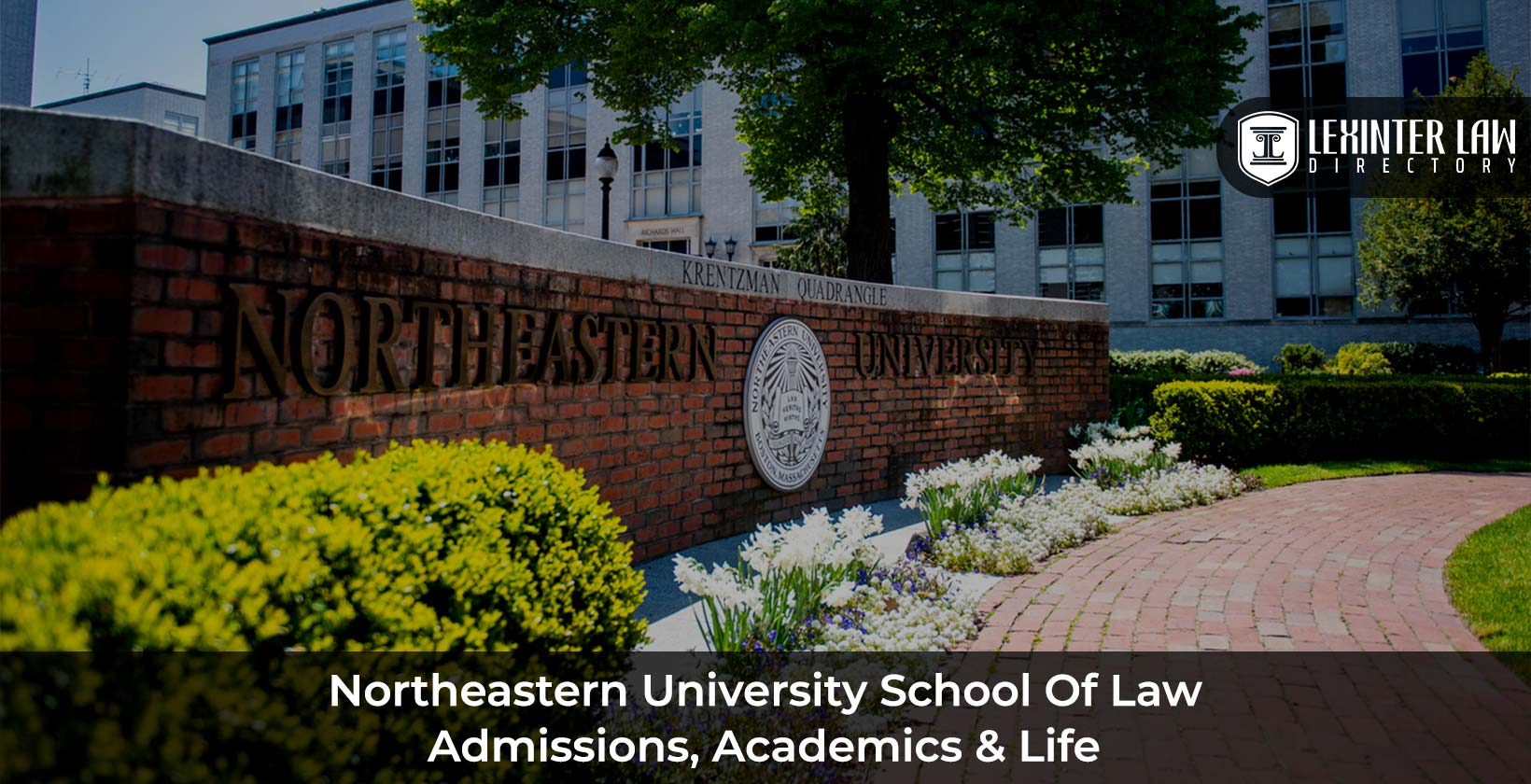Northeastern University School Of Law: Admissions, Academics & Life
Navigating Northeastern University School of Law involves exploring a legal education model rooted in innovation, social justice, and hands-on experience. Located in the heart of Boston, the school blends academic rigor with a nationally recognized cooperative learning program that integrates real-world legal practice into the curriculum. This school is more than just a place to study law; it’s where legal dreams turn into reality.
From its distinguished faculty and diverse student body to its top-ranked specialties in healthcare law and clinical training, Northeastern provides a supportive and purpose-driven environment. This guide offers a comprehensive overview of the school’s academic offerings, student life, outcomes, and more, helping prospective students understand what sets Northeastern Law apart.
Table of Contents
- Location And Address Of Northeastern University School Of Law (NUSL)
- Historical Background Of Northeastern University School Of Law
- Overview Of NUSL’s Academic Programs And Specializations
- Highlighting The Qualifications And Achievements Of The Faculty
- Rankings And Reputation Of Northeastern University School Of Law
- Admissions
- Profiles Of Notable Alumni And Their Contributions
- Campus Facilities And Student Life
- Bar Passage Performance
- Employment Outcomes
- Frequently Asked Questions About Northeastern University School Of Law
- Conclusion
Location And Address Of Northeastern University School Of Law (NUSL)
Description Of NUSL’s Location Within Boston
Northeastern University School of Law occupies a central location in Boston’s Fenway–Kenmore neighborhood. The campus sits near cultural landmarks like the Museum of Fine Arts and Fenway Park. Public transit connects the area efficiently. Law students engage deeply with Boston’s legal institutions through hands-on opportunities and interdisciplinary academic resources.
Northeastern University School of Law, located at 416 Huntington Avenue in Boston, Massachusetts, sits at the core of the university’s urban campus.
Historical Background Of Northeastern University School Of Law
Northeastern University School of Law originated in 1898 as an evening program organized by the Boston YMCA to provide legal education for working individuals. Frank Palmer Speare led the initiative, which quickly evolved into the Evening School of Law of the Boston YMCA by 1904, authorized to grant LLB degrees. The program maintained a strong enrollment and began admitting women in 1922. By then, it had formally adopted the name Northeastern University School of Law. Financial difficulties during the early 1950s led to the school’s closure in 1953. Alumni efforts and institutional commitment revived the program in 1966.
The school introduced a cooperative legal education model that integrated classroom theory with practical legal work experience. This model earned full accreditation from the American Bar Association by 1971. NUSL has since maintained a strong focus on experiential learning, social justice, and public interest law, becoming a pioneer in integrating legal education with civic engagement.
Milestones And Notable Achievements Over The Years

1. Pioneering Cooperative Legal Education
In 1968, Northeastern University School of Law launched its signature Cooperative Legal Education Program. This innovative approach integrated rigorous academic training with full-time legal work placements. The program has influenced national trends in experiential legal education and remains central to NUSL’s curriculum.
2. Advancing Racial Justice Through CRRJ
The Civil Rights and Restorative Justice Project (CRRJ), founded by Professor Margaret Burnham, investigates racially motivated killings in the American South from 1930 to 1970. CRRJ has established itself as a model for legal scholarship and community-engaged justice initiatives.
3. Faculty Excellence And Impact
NUSL’s faculty includes prominent legal figures such as Michael Meltsner, a key figure in civil rights litigation with the NAACP Legal Defense Fund, and Richard Daynard, a pioneer in public health law and anti-tobacco advocacy. Their work has shaped legal discourse across disciplines.
4. Distinguished Alumni Achievements
Graduates of NUSL include notable figures such as U.S. Senator Maggie Hassan and award-winning poet Martín Espada, who received the 2024 Mass Humanities Governor’s Award for civic contributions through the humanities.
5. National Recognition For Racial Justice
In 2024, preLaw magazine ranked NUSL ninth in the country for its commitment to racial justice. This recognition highlights the school’s sustained efforts to integrate equity, inclusion, and social impact into its legal education model.
Overview Of NUSL’s Academic Programs And Specializations
Juris Doctor (JD) Program
Northeastern University School of Law offers a full-time, three-year JD program that combines rigorous academic training with extensive practical experience. The curriculum begins with foundational courses such as Civil Procedure and Constitutional Law, along with a yearlong Legal Skills in Social Context (LSSC) course that focuses on community-based legal writing projects. The program alternates academic terms with full-time co-op placements, giving students nearly a year of legal work experience before graduation. Upper-level electives span areas like Intellectual Property, Environmental Law, and Public Health Law.
FlexJD Program
The FlexJD program provides a part-time pathway for students balancing other responsibilities. It blends asynchronous online instruction with required in-person sessions in Boston. Students in this program complete the same curriculum and benefit from the same co-op opportunities as full-time JD candidates.
LLM Program
NUSL’s LLM program is designed for U.S. and internationally trained attorneys seeking to deepen their expertise. Offered in both on-campus and online formats, the program includes concentrations in areas such as Health Policy and Law, Human Rights and Economic Development, Intellectual Property, and International Business Law. On-campus students may complete the program in nine months or opt for a three-month legal co-op, extending the program to 12 months. The online format supports working professionals and includes a flexible curriculum with optional immersion experiences and bar exam-focused tracks.
Interdisciplinary Graduate Certificates
JD students can pursue specialized graduate certificates to develop expertise in fields such as Health Law and Policy, Legal Design, Privacy Law, and Gender and Sexuality Law. These certificates combine targeted coursework, co-op placements, clinical experience, and a final written project aligned with each specialization.
Dual Degree Programs
Students enhance their legal training through dual degrees:
- JD/MPH with Bouvé College of Health Sciences or Tufts School of Medicine focuses on public health and legal intersections.
- JD/MBA with the D’Amore-McKim School of Business prepares students for roles requiring fluency in both legal and business disciplines.
Specialized Areas Of Study
Upper-level students tailor their coursework through concentration paths in topics like human rights, labor and employment law, and technology law. These academic options integrate with co-ops and clinical programs to offer immersive, career-focused learning.
Experiential Learning And Clinics
NUSL emphasizes hands-on legal practice through co-ops and clinics. Students engage with real legal challenges via clinics like the Civil Rights and Restorative Justice Project, the Domestic Violence Institute, and the Immigrant Justice Clinic. These opportunities promote client advocacy, policy impact, and public service values central to the school’s mission.
Highlighting The Qualifications And Achievements Of The Faculty

Margaret Burnham: Civil Rights Leadership
Professor Margaret Burnham, a senior faculty member at Northeastern University School of Law, directs the Civil Rights and Restorative Justice Project. Her groundbreaking work uncovers racially motivated violence during the Jim Crow era and contributes to national civil rights efforts through federal appointments.
Richard Daynard: Public Health Advocacy
At Northeastern University School of Law, Professor Richard Daynard leads the Public Health Advocacy Institute. He is internationally recognized for litigation that held the tobacco industry accountable and has shaped global policy on corporate responsibility and public health protections for decades.
Wendy Parmet: Health Law Expertise
Wendy Parmet serves as a Distinguished Professor at Northeastern University School of Law and directs the Center for Health Policy and Law. Her scholarly work in public health and pandemic response influences national legal frameworks and brings visibility to critical healthcare rights.
Hemanth Gundavaram: Immigrant Rights Education
Hemanth Gundavaram enhances legal education at Northeastern University School of Law as director of the Immigrant Justice Clinic. Honored for teaching excellence, he mentors students through hands-on legal service, providing impactful representation for marginalized immigrant communities across the legal spectrum.
Rashida Richardson: Technology And Civil Liberties
Rashida Richardson, an Assistant Professor at Northeastern University School of Law, explores the intersection of technology policy and civil rights. Her research on algorithmic fairness and data justice contributes to national discussions on the ethical governance of artificial intelligence and surveillance systems.
Rankings And Reputation Of Northeastern University School Of Law
In the 2025 U.S. News & World Report rankings, Northeastern University School of Law holds the No. 68 position among 195 best law schools. The school ranks especially high in public interest law, placing third nationally for the most graduates entering that field. It also earns top marks in clinical training at No. 19 and ranks ninth in health care law. Other notable placements include No. 26 in intellectual property law, No. 27 in legal writing, and No. 45 in international law. These rankings reflect Northeastern’s strong focus on practical training and interdisciplinary legal education.
Admissions
Detailed Insight Into NUSL’s Admissions Process
Northeastern University School of Law, known as NUSL, seeks more than just academic excellence during admissions. They look for passionate individuals ready to make a mark in the legal world. The application process for this prestigious law school typically involves submitting academic records, personal statements, and letters of recommendation. It’s not just about grades; NUSL values diverse backgrounds and unique perspectives.
Current Acceptance Rate
The acceptance rate for Northeastern University School of Law for the 2024-2025 academic year is 36.2%. This low acceptance rate makes this law school one of the best law schools in Massachusetts.
LSAT Scores – Class Of 2025
For the 2025 entering class at Northeastern University School of Law, LSAT scores ranged from the 25th percentile at 159 to the 75th percentile at 165. The median LSAT score among all admitted students was 163, reflecting a competitive admissions profile.
GPA Range – Class Of 2025
The undergraduate GPA range for students admitted to the 2025 class spanned from 3.54 at the 25th percentile to 3.85 at the 75th percentile. The median undergraduate GPA for all program entrants stood at 3.73, showcasing strong academic backgrounds across the cohort.
Tuition
For the 2025–2026 academic year, tuition for full-time JD students at Northeastern University School of Law is $63,002, reflecting a 4.02% increase from the previous year. The estimated total cost of attendance, including tuition, fees, and living expenses, reaches approximately $85,902. On average, students receive financial aid packages of roughly $32,000, resulting in a net cost of around $53,902. Tuition for upper-level JD students spans three semesters, including a required summer term as part of the co-op model. Health insurance coverage is mandatory, with Northeastern’s plan priced at $2,849, although students with equivalent coverage may opt-out by submitting a waiver.
The school also offers an online Master of Legal Studies (MLS) program, which costs $1,219 per credit hour, totaling approximately $36,570. These financial considerations underscore the importance of planning and utilizing available support through the school’s Office of Financial Assistance and merit-based scholarship offerings to make legal education more accessible.
Profiles Of Notable Alumni And Their Contributions
Graduates of Northeastern University School of Law have shaped vital sectors of law, politics, civil rights, and the arts through their leadership and advocacy. Maggie Hassan, class of 1985, served as both U.S. Senator and Governor of New Hampshire, focusing her work on healthcare and education reform. Maura Healey, a 1998 graduate, became the first openly gay state attorney general in the country and now serves as the Governor of Massachusetts, known for her civil rights enforcement and consumer protection efforts.
Mary Bonauto, class of 1987, played a central role in achieving marriage equality in Massachusetts through the landmark Goodridge case. Martín Espada, a 1985 alumnus and acclaimed poet, received the 2024 Mass Humanities Governor’s Award for advancing civic life through literature. Urvashi Vaid, a 1983 graduate, led national LGBTQ+ advocacy through writing and activism, serving as executive director of the National LGBTQ Task Force and promoting equality through legal and cultural platforms.
Campus Facilities And Student Life
Campus Facilities At Northeastern University School Of Law
Northeastern University School of Law maintains a dynamic academic setting supported by three main buildings along Huntington Avenue: Knowles Center, Cargill Hall, and Dockser Hall. Knowles houses administrative offices and the law library, while Cargill features faculty offices and seminar spaces. Dockser Hall includes classrooms, clinical spaces, and a moot courtroom and holds LEED Gold certification for sustainable design. Students access nearly one million volumes through both the Law Library and Snell Library. Recreational amenities include the Marino Recreation Center, which contains advanced fitness equipment and group training rooms, and the Rosen Squashbusters Center.
Student Life And Community Resources
Over 200 student organizations allow engagement across diverse legal and advocacy interests. Venues such as Blackman Auditorium and afterHOURS support cultural and social programming. Campus dining features more than 25 eateries, including Curry Student Center’s food court. While university housing is not provided for law students, dedicated support services assist in securing off-campus residences. The central Boston location connects students to the city’s civic and professional resources.
Bar Passage Performance
First-time bar passage for Northeastern University School of Law stands at 86.2%, surpassing the national average of 80%. The school reports a two-year Ultimate Bar Passage rate of 95.2%, reflecting strong long-term performance across jurisdictions. These results indicate consistent preparation for bar exam success.
Employment Outcomes
Ten months after graduation, 87.5% of Northeastern law graduates achieved full-credit outcomes, aligning with professional legal roles or equivalent placements. The total number of graduates reported was 208. Employment at the time of graduation remains unspecified, though the co-op model supports early workforce integration.
Frequently Asked Questions About Northeastern University School Of Law
1. Is Northeastern Law A Good Law School?
Yes, Northeastern University School of Law is a good law school recognized for its strong emphasis on experiential learning through its signature co-op program. The school is widely respected for its commitment to social justice, public interest law, and interdisciplinary legal education.
2. What LSAT Score Do I Need For Northeastern?
You need an LSAT score between 159 and 165 to fall within the competitive range for Northeastern University School of Law, based on the 25th to 75th percentile scores for the 2025 class. The median LSAT score for all program entrants is 163.
3. What Is The Northeastern University School Of Law Acceptance Rate?
The acceptance rate at Northeastern University School of Law for the 2025 admissions cycle is 36.2%. Out of 4,133 applicants, 1,496 were offered admission, and 261 enrolled, resulting in a yield rate of 17.45%.
Conclusion
Northeastern University School of Law stands out for its commitment to experiential learning, social impact, and academic excellence. With a strong co-op program, a dedicated faculty, and a focus on public interest law, the school prepares students for meaningful and dynamic legal careers. Its central Boston location enhances professional access and cultural engagement. For those seeking a forward-thinking and purpose-driven legal education, Northeastern offers a distinctive path grounded in real-world experience and a deep commitment to justice.

